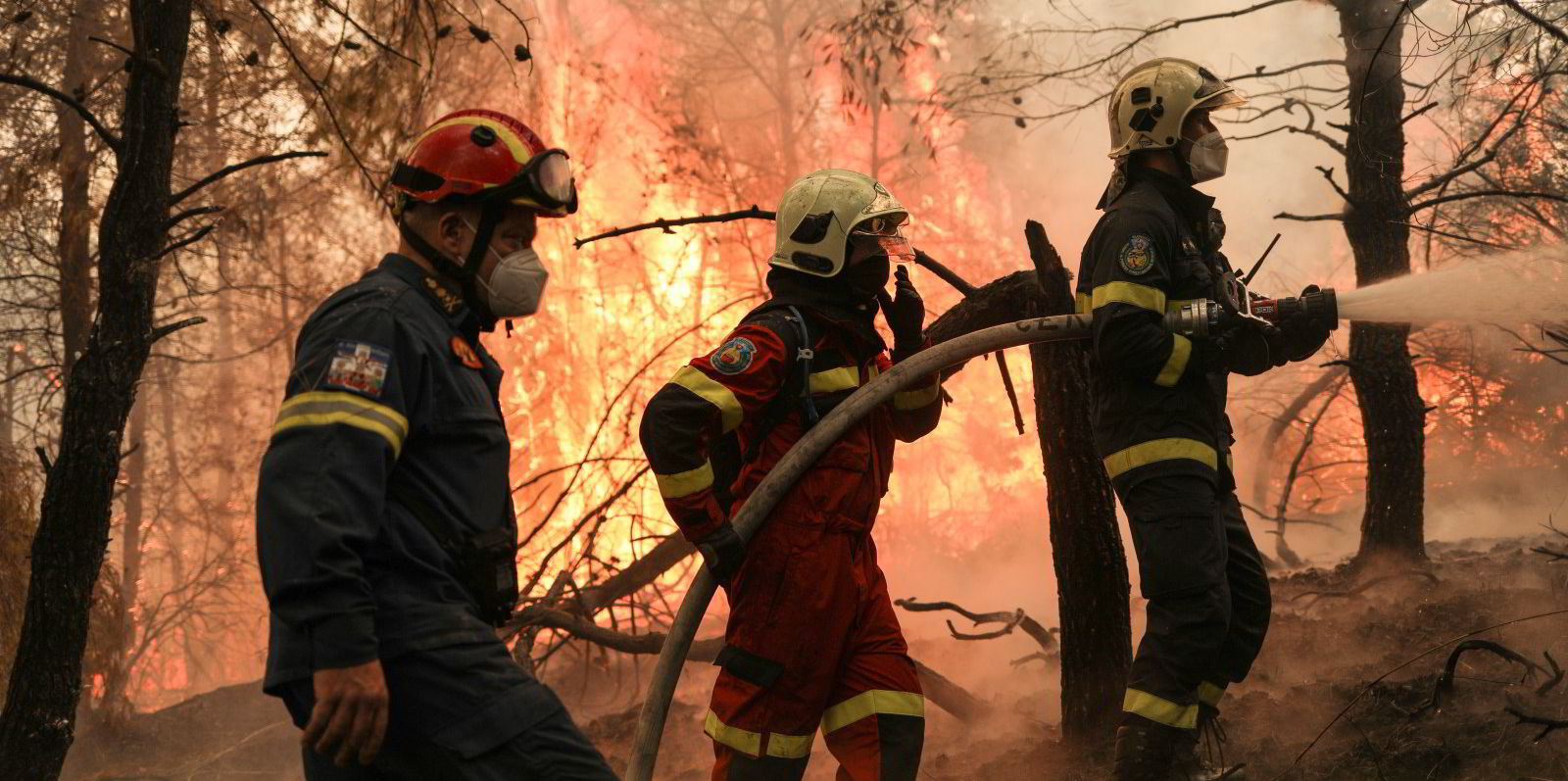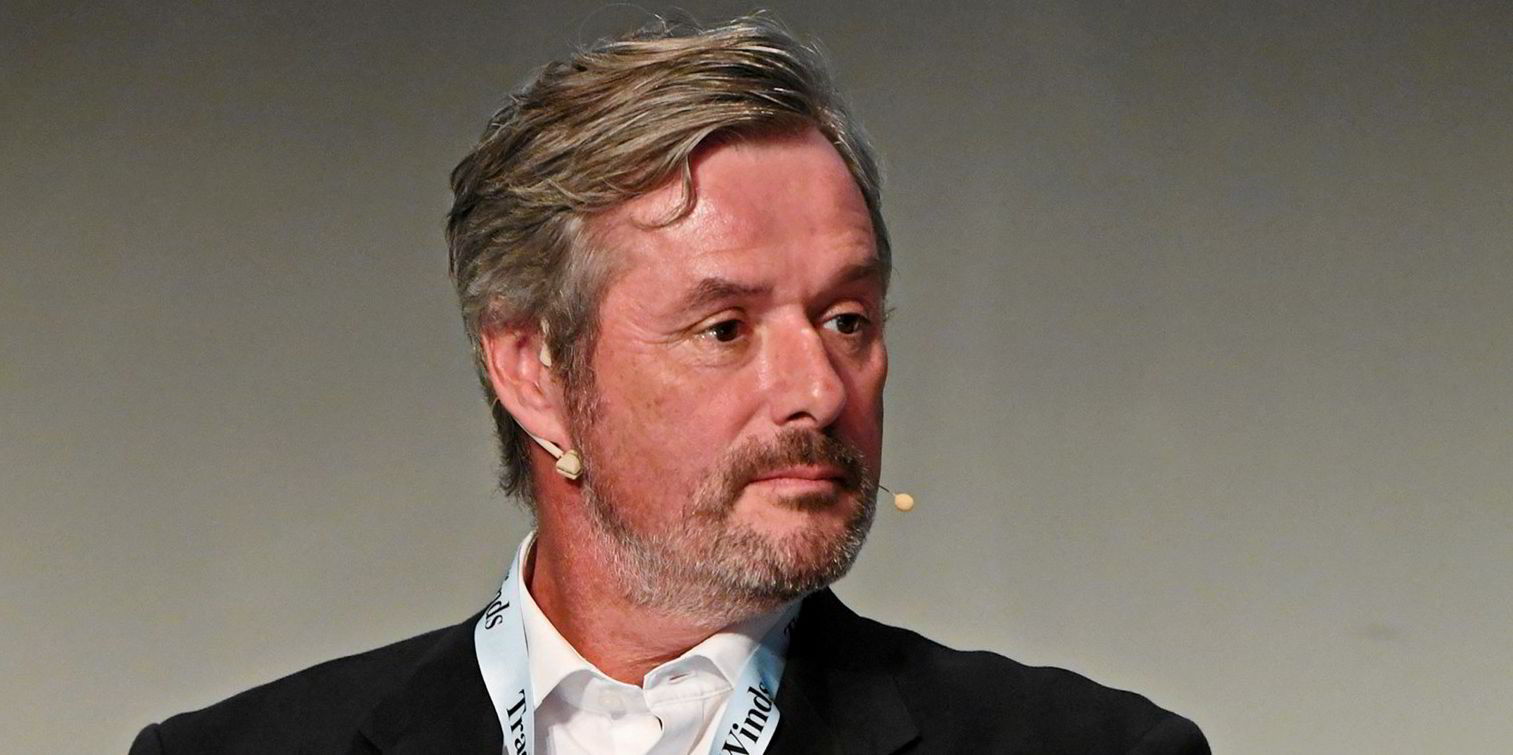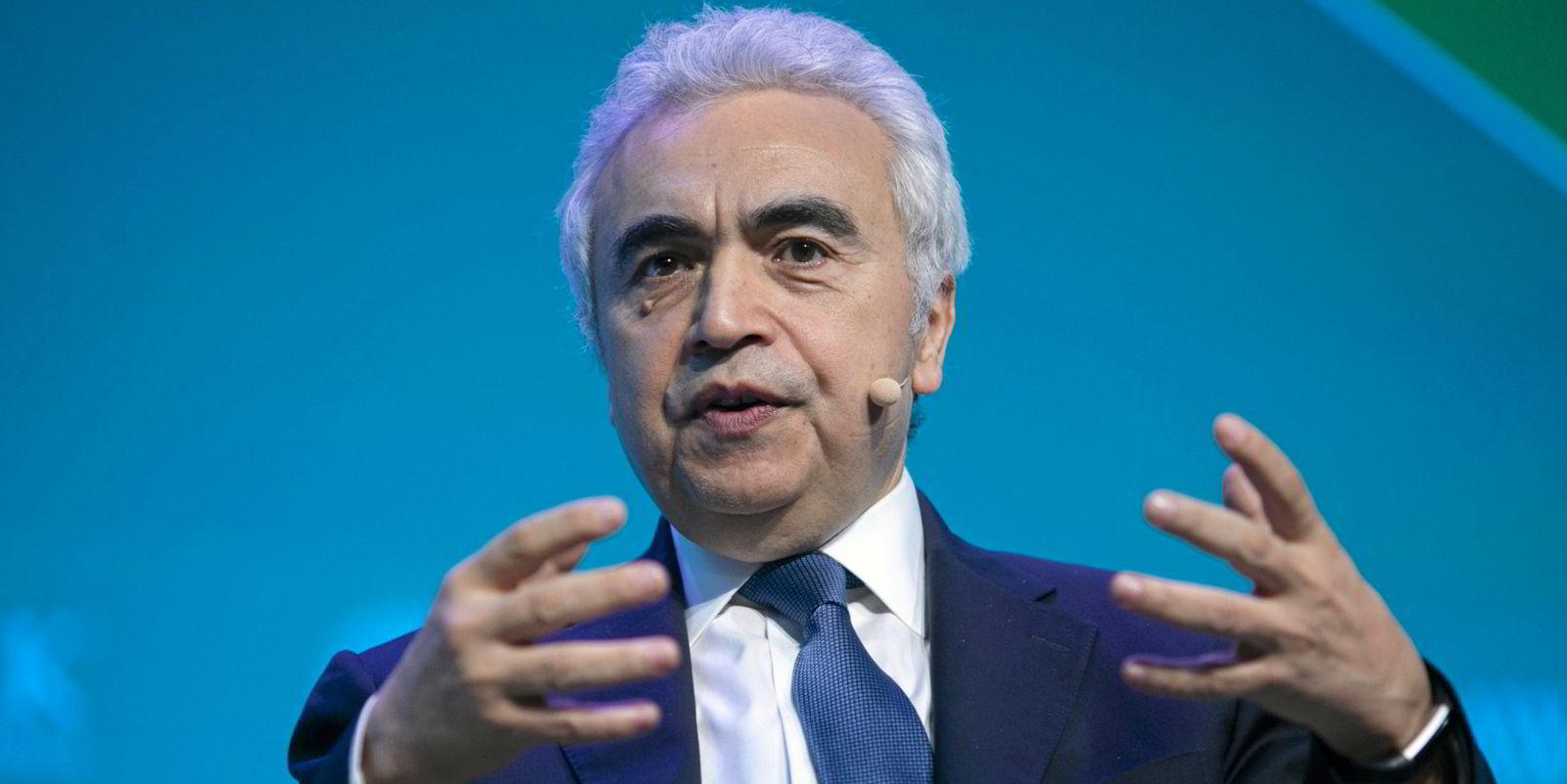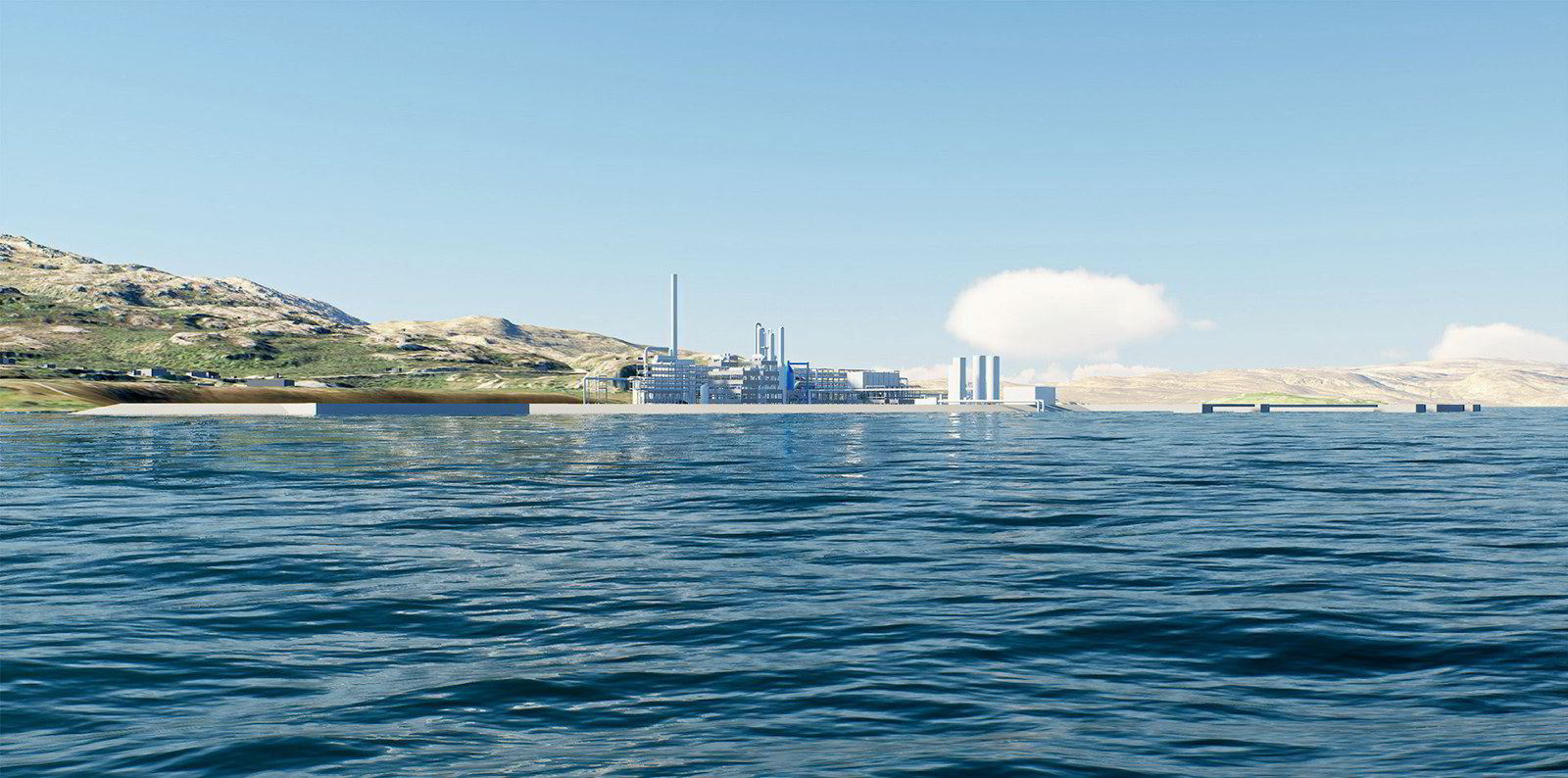Thousands of tourists and residents have been forced to flee their homes in Athens over recent days as wildfires sweep Greece.
Konstantinos Michalos, president of the Athens Chamber of Commerce, was found unconscious in a factory close to the blaze.
The ground temperature in downtown Athens was measured at an astonishing 55C.
In neighbouring Turkey, eight lives have been lost and tens of thousands evacuated from their homes in the country’s worst ever fires.
And far off at the North Pole, smoke has been detected for the first time from fires, which have been sweeping uncontrollably through Siberia.
In Germany, flooding has swept away houses and forced residents to leave their homes.
Few will deny these natural disasters are connected with a warming climate due to rising man-made carbon emissions.
And certainly the latest report from scientists working on the United Nations' intergovernmental panel on climate change (IPCC) published on Monday makes clear irreversible global warming is underway and can only get worse unless drastic action is taken to reduce CO2.
Even the normally staid British former Secretary of State for Business, Alok Sharma, who will be chairing the COP26 climate talks in Glasgow in November, said this week “we are on the brink of catastrophe”.
So that is the context in which the maritime industries find themselves fighting the introduction of carbon regulations in Europe and elsewhere.
It is understandable and right that shipowners want practical solutions that do not drive them out of business.
It is also understandable that legislators have lost patience with the shipping industry coming up with solutions itself.
EU pushing ahead
The European Union has effectively been forced to push ahead with early attempts to cut carbon because of failures by the International Maritime Organization.
And only two months ago we heard Panos Laskaridis, former head of the European Community Shipowners' Association, telling a TV crew that people in shipping do not need the IMO — or the Greek government.
It is no good squabbling over who is responsible or who should pay. We shall only succeed in dealing with the problems through a vast international, cooperative effort.
Margaret Thatcher
This comment was condemned at the time by Theodore Veniamis, the president of the Union of Greek Shipowners, but many in the industry privately agreed with him.
Veniamis himself is happy to attack the EU Emissions Trading System (ETS) by claiming it is just a money-raising exercise.
He said: “We fully understand the deep concerns of the EU’s international trading partners and their opposition to the imposition of this unilateral burden on international trade, which is perceived as a revenue-generating measure and not as one with real environmental benefits.”
There are understandable worries about administrative complexity, fluctuating carbon prices and the fuel quality needed to meet the FuelEU Maritime directive that goes along with the EU ETS.
But we really do need to just get on with this: find the opportunities as well as the threats that come out of decarbonisation if the floods, wildfires and parts of the planet being made uninhabitable are not to worsen.
It is good to see tiny positive fragments of change such as electric ferries, dual-fuel ship orders and the Baltic Exchange starting to publish benchmark reference figures for CO2 emissions from vessel operations.
And innovative schemes such as Oslo-listed Horisont Energi partnering with the port of Rotterdam to explore shipping “blue” ammonia derived from carbon captured natural gas for making a hydrogen ship fuel — even if the ultimate goal must be to make “green” hydrogen using renewables.
It is more than 40 years since the first warnings were being made to the UN about the dangers of climate change — even by highly business-friendly people.
"What we are now doing to the world, by degrading the land surfaces, by polluting the waters and by adding greenhouse gases to the air at an unprecedented rate — all this is new in the experience of the earth. It is mankind and his activities that are changing the environment of our planet in damaging and dangerous ways."
"It is no good squabbling over who is responsible or who should pay. We shall only succeed in dealing with the problems through a vast international, cooperative effort.”
Who said this in 1989? Former UK prime minister Margaret Thatcher. The Iron Lady — a chemist by training — would not have been surprised to see wildfires blazing but would have been surely surprised to see parts of the shipping industry fighting a war that has already been lost.






